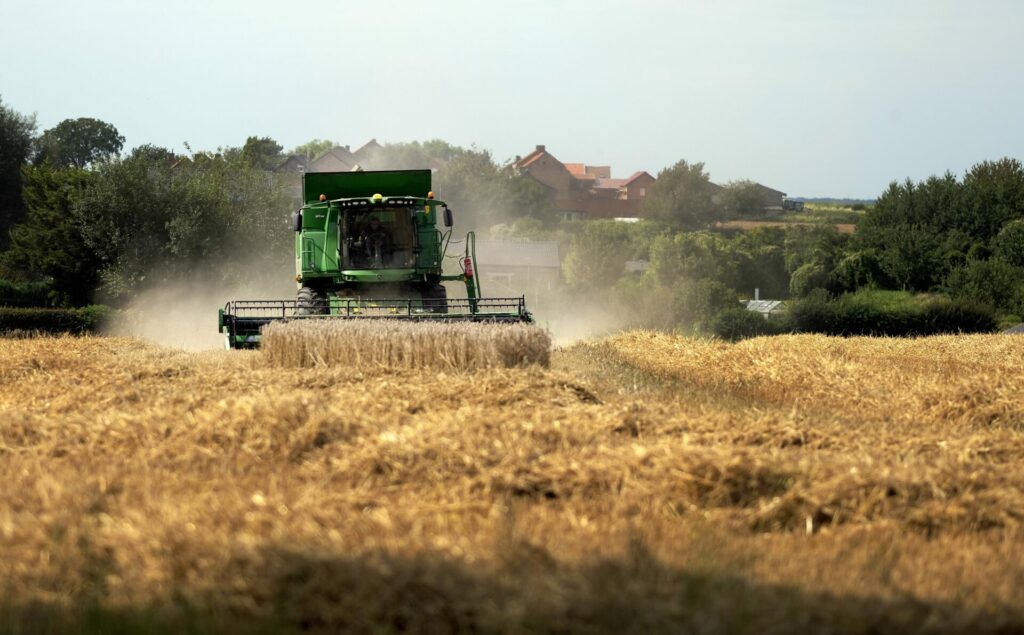Ukrainian grain exports are blocked after Russian forces occupied large parts of southeastern Ukraine by the black sea. As Russia's invasion of Ukraine drags on, holding wheat exports hostage could have a devastating impact, particularly in the Middle East and Africa.
According to recent media reports, the Ukrainian government has accused Russia of having stolen up to 500,000 tons of Ukrainian wheat, worth $100 million, since its invasion of Ukraine.
In May, US Secretary of State Antony Blinken accused Russia of using food as a weapon of war. The EU joined the US in blaming Russia for global food shortages at a UN Security Council meeting on Monday, causing the Russian UN ambassador to storm out of the room.
EU Council chief Charles Michel said that Russia is using food shortages as a "stealth missile" against the developing world. Russian UN ambassador, Vassily Nebenzia, rejected the claim. Yet the war has left supplies of primary ingredients stranded in Ukrainian ports.
Related News
- 'You can leave the room': Charles Michel blasts Russian Ambassador to UN
- European leaders reach agreement on partial Russian oil embargo
"Let's be honest, the Kremlin is using food supplies as a stealth missile against developing countries," Mr Michel said during the Security Council meeting in New York.
"The dramatic consequences of Russia's war are spilling over across the globe, and this is driving up food prices, pushing people into poverty, and destabilising entire regions... Russia is solely responsible for this food crisis."
Michel added that he had seen with his own eyes how Russia's naval blockade had prevented the wheat exports from leaving Odessa. He accused Russia of stealing grain and preventing crops from being sowed and harvested.
Failed negotiations
Russian Foreign Minister Sergey Lavrov said on Wednesday at a press conference in Turkey that Ukraine must diffuse mines around Odessa and that Russia is ready to guarantee the safety of ships leaving Ukraine for Turkish waters.
Both Ukraine and Russia have laid mines in the Black Sea, but Ukraine fears that Russia will launch an offensive against Odessa if the mines are diffused. These concerns have only been intensified as Russia demanded control of commercial ships to make sure that they do not carry weapons.
Turkey has offered to escort ships from Ukraine to Turkish waters after a request from the UN, but Ukraine insisted that exports be escorted by NATO, stressing the threat of a Russian assault on Odessa.
Kremlin propaganda
Russia has blamed European sanctions for the grain shortages, which appears to have already had some effect in Africa.
In a video address to the European leaders last week, the president of the African Union, Macky Sall, voiced concerns about Russian banks being disconnected from SWIFT, the international payments system.
Sall acknowledged that the war in Ukraine was to blame but urged the EU to ditch sanctions against Russian grain and fertilizers. Last week, he met in Russia with President Putin, apparently in an effort to secure grain supplies from the country.
If could be recalled that the sixth European Union – African Union (EU-AU) summit, which took place in Brussels in February a week before the Russian invasion of Ukraine, finished with a statement on a joint vision on cooperation for 2030.
German Foreign Minister Annalena Baerbock accused the Kremlin of a "disinformation campaign" and repeated that "there are no sanctions against grain and humanitarian aid." This was confirmed by The World Food Programme: "Food exports from Russia are not sanctioned."
Asked at the Commission’s press conference today whether the EU could prevent stolen Ukrainian grain from being exported by Russia, the chief spokesperson of the Commission referred to President von der Leyen. In a plenary meeting in the European Parliament on Wednesday, she joined Council president Michel in stating that the current food shortage is solely linked to Russia’s aggression.
Peter Stano, lead spokesperson for foreign affairs, was outspoken in his reply. He accused Russia of destroying Ukrainian fields and stockpiles of grain, blockading Ukrainian harbours from exporting the grain and looting what is left of it. EU knows that Russia is trying to export looted grain to other countries. He mentioned that Egypt has refused to accept looted grain.
EU is calling on its partners that whatever grain they buy, they should know from where it comes and not accept anything which has been looted from Ukrainian territory, he said. However, in practice EU cannot do more than raising awareness about it. Without alternative supplies, countries in Africa are in desperate need of the grain from Ukraine, looted or not.

